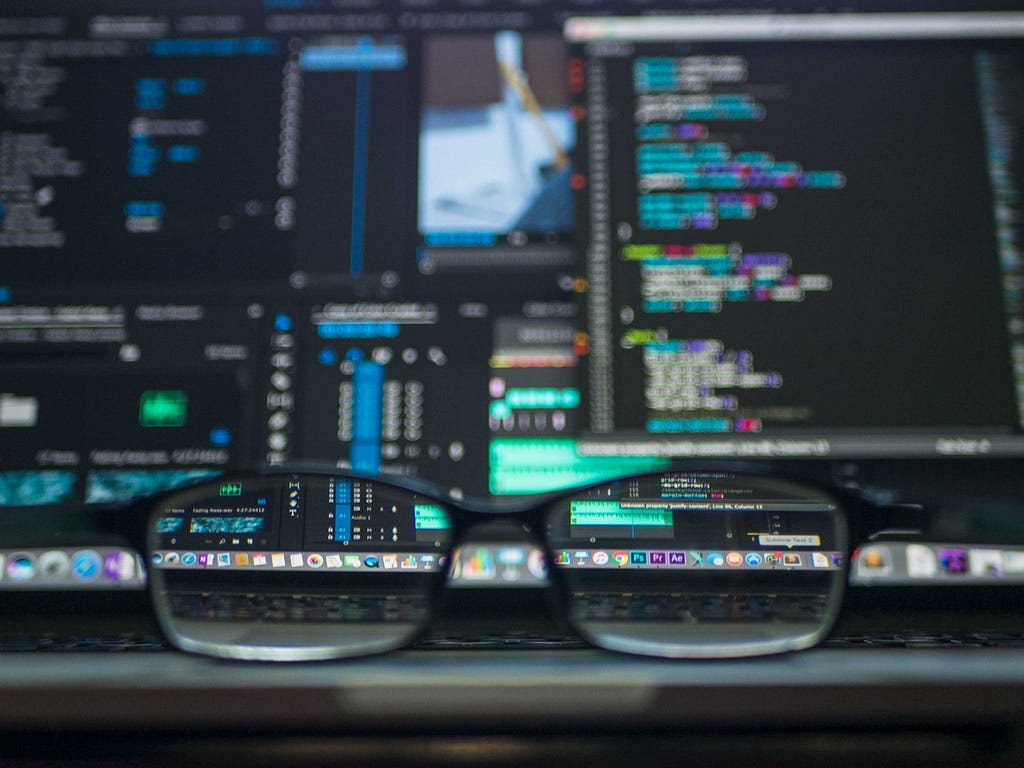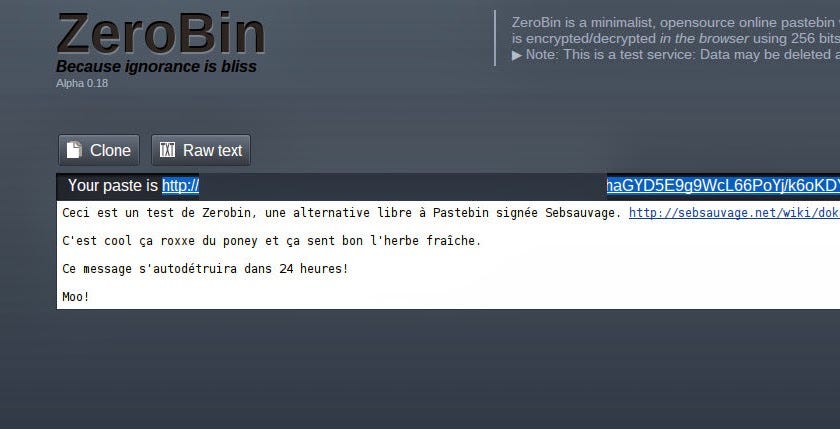Latest news about Bitcoin and all cryptocurrencies. Your daily crypto news habit.
“Anonymity is just a perception. It’s not that somebody owns it but possess it”
If you are fully known to an enemy or naked in your battle, you may not even stand a chance. If you are giving every piece of information about yourself to the enemy, then they have the power to think accordingly and counter our every move with a smarter move before we even attacked them with it. Think about it?
By the way, I am the curator of CodesMyth, an online platform for Simplifying code and breaking Myths.
But what sense does the above things imply?
What is happening to our anonymity?
Now, we may or may not know it but the top government agencies from all around the world are spying on us continuously 24 X 7 by recording our call location, tracking our mobile GPS, Facebook & Twitter Update, online payment logs & bills, CCTV & ATM & other surveillance cameras. In fact, your every move is being recorded and analyzed by these professionals hiding behind the government mask using some serious deep Learning algorithm. Some of the government organizations that track us are CIA, NSA Pentagon and much more. What’s their motive?
NSA — National security agency | CIA — Central intelligence agencyDeep learning algorithm — machine trained using algorithm to detect the pattern using the past data.Anonymity — privacy or secure documents
Why are they doing that?
They think that by being recording the activity of all the persons all around the globe, they have the potential to separate terrorists from the clusters of common people by analyzing their actions and pasts. They believe that they can stop these attack by predicting their future moves, thus trying to save millions of lives. But, hiding behind this aim they cannot gives excuses on invading the privacy of everyone which itself is a very big crime.
Does anyone give a shit about anonymity?
Yeah, you may not probably know them. Hell, some of you haven’t heard about them. The most popular person among all was the whistleblower Edward Snowden who used to work for NSA, USA. He was unable to give himself excuses regarding what he was doing for the government was right. So, he decided to blew and expose some of the documents which would be enough to prove that the USA government is spying on us. His classified documents can be found out on the deep web. Due to such act, he had to fly to Russia where he is spending current days along with his wife. We may not know them but a large number of whistleblowers are trying to provide anonymity so that we can have our privacy intact and untouched.
I haven’t done any wrong in my entire life. Why should I worry about it?
In the today’s world of digital information, the most valuable asset of any organization can be its information collected about its users that exists around the globe.
This isn’t about you. No amount of money, gold, diamond, bitcoin can buy us that much information which the government agencies and other top brands are acquiring from the unauthorized ways for free. Think about it. Google stores data which includes search queries of each Google product, our mail, drive and our other data in their cache for 8 years. Facebook does the same for 5–6 years. These government agencies are now keeping track of all your whereabouts. They access all their data from these websites and cross verify them from other sources too.
With this huge big data and deep machine learning algorithm, they already know where were you a couple of seconds ago, they can predict where you are going to be in the next couple of seconds, next one minute or next hour.
All your life will become controlled and all the other factors can be controlled in our life by these external agents. We may end up becoming a sacrificial pawn in their bigger picture.
What issues can be removing anonymity causes?
Think about it. Is it safe to provide such huge amount of information in the hands of a small number of individuals and let them be the undisputed rulers of the world? What’s preventing them from turning against us, the moment things go sideways? What’s preventing them to sell our information from selling our information to the third parties if they need money very badly in order to survive? If you have nothing to hide and you are like an open book, then following things may happen to you:
1- Your identity is never protected — If someone wants a revenge on you, all they need to know is your schedule, lifestyles and close ones.
You may not even know that the person sitting next to you may be there to attempt a hit on you. You may be lucky enough to survive all of these. If they come to know all about our weakness, then all the money and resources in the world won’t be enough to protect you.
A good example of this is South Korea. The Resident registration number is assigned to each citizen of South Korea which is used as an identifier and is required for online registrations for online accounts on websites. According to this, each citizen can create a single account because there will be only 1RRN per citizen. This would remove duplication and forgery. But things didn’t go as planned. In 2006, hundreds of thousands of RNNs were leaked from various consumer databases, and these RRNs were used to create false accounts in a game called Lineage as a part of money laundering operations. The worst part is that these RNNs weren’t stolen by hackers, but were sold by company employees with database access. Every information, even of the credit card was compromised which is not at all acceptable.
2- Personal Harassment is not a new term in our digital world — one of the most amazing things about the Internet is that it can give voices to those who are actively being silenced, allowing them to speak without fear of repercussion from the shadows. But after removing the anonymity, personal views will be replaced by fear of repercussions thus eliminating the productive and constructive decisions in the era. Some examples of harassment include Doxing, swattingand revenge porn.
In 2011, Mohammed Al-Maskati — an outspoken political activist in Bahrain — as arrested and sequestered for eight days, only being released after having signed an agreement to never again mention Bahrain in any form of media. This only happened because he chooses to use his real name instead of fake name.
3- The sensitive issues will be diminished. They refer to those who need more information on a given topic but don’t want to be caught seeking out that information. Most people actually fall into this group without realizing it.
One such example is a person who’s struggling with their sexuality, hasn’t gone public with that struggle, but has many unvoiced questions and concerns. This person can ask all of their questions in an online community where anonymity exists thereby reducing the risks.
The list goes on: people who struggle with mental health issues, people who are cheating in relationships, people who need divorce advice, people who are caught up in legal issues and don’t want to incriminate themselves, etc.
Is 100%-real online anonymity possible?
In my personal opinion, NO. A big NO. No, 100%-real anonymity does not exist at all. No matter how much advance technologies you are using, complete online anonymity is not possible.
It depends on the number of government agencies and hackers willing to dedicate their time and resources to put on the use and the importance and sensitivity of the issue that they are handling determines how far they can go to track us.
When someone is tracking us, then all we can do is to make their job difficult by using the right set of tools and techniques and not be there at the point where the trail ends. Just try to create it into a dead end. It generally takes months to years in tracking someone who doesn’t want to be tracked.
We can use tools, techniques, and concepts (when Implemented) for improving our security, thus reducing the amount of the surveillance and data collection going on, resulting in increasing our anonymity and privacy.
These advice matters from person to person and may not be possible for everyone to implement. The risk involved in using these should not be ignored. Hence, before using them we should learn in deep about them.Let’s begin with the list, shall we?
Can you protect your password?
Generally, in some cases, we can see that a large amount of email id and password leaked and distributed for free. We can remove this problem by creating a password by hashing the URL of the website with our original password. Didn’t get it. Let me tell you in detail.
We need an extension for the browsers, in which we will implement a simple procedure. As soon as we click submit after entering our user id and password along with other credentials to create our account, then that extension will start performing its function. It will extract the name of the website and password from the Create an Account/Login page and then process them through a hash function.
All of this will happen seamlessly. This way, the password generated will be long, random and nobody will be able to copy it or generate it with ease. This way, the password will become different for the different website.This work has been done by some Stanford professors. This will also make it difficult for the hackers to crack our password by brute force or any other method since that too will take a large number of dedicated years and resources. This way, the organizations won’t be having any details of our password.
SEAMLESSLY — Smoothly and continuously without any gaps.Hash function — a function that can be used to map data of arbitrary size to fixed size.
Can you protect your data through paste?
A large number of people share data through various online Pastebin unaware that their data is being recorded. Especially coders and developer share their work with peers in the Pastebin. Thus, we should use ZeroBin. ZeroBin is a minimalist, opensource online Pastebin where the server has zero knowledge of pasted data. Data is encrypted/decrypted in the browserusing 256 bits AES.
Disclaimer
The views and opinions expressed in this article are solely those of the authors and do not reflect the views of Bitcoin Insider. Every investment and trading move involves risk - this is especially true for cryptocurrencies given their volatility. We strongly advise our readers to conduct their own research when making a decision.

